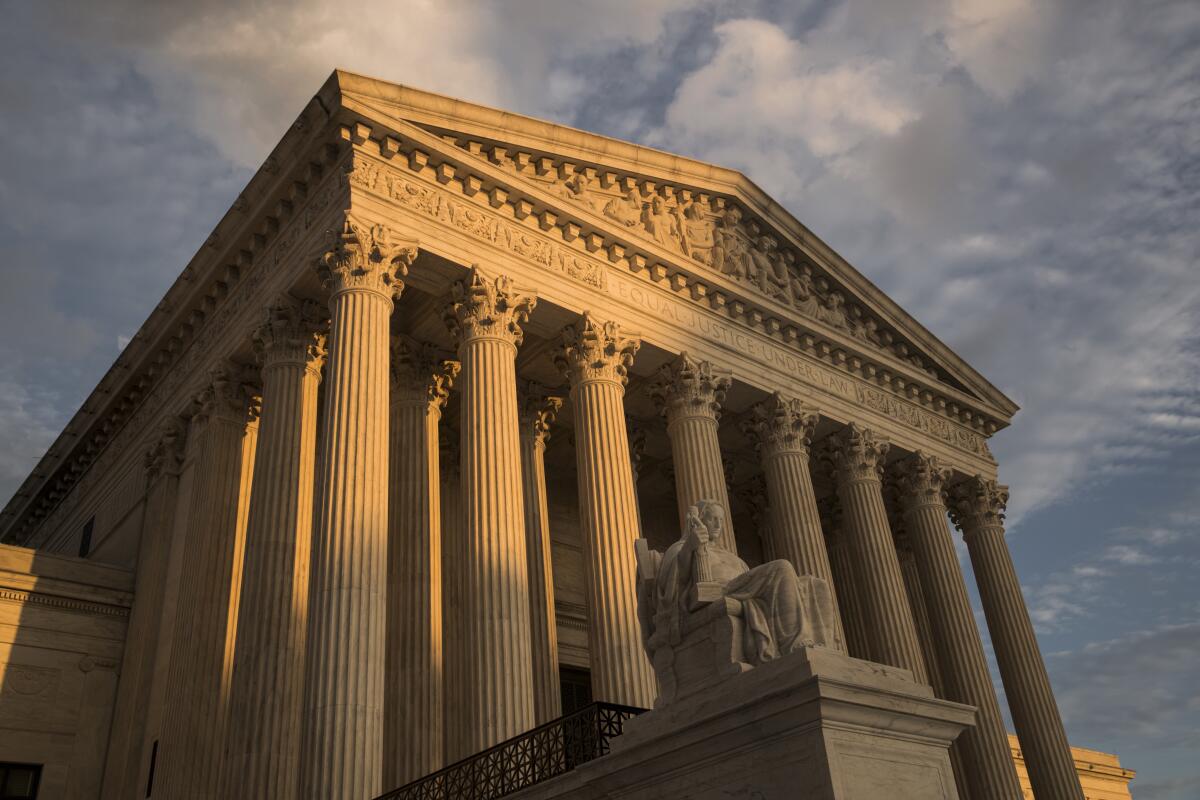Biden urges Supreme Court to deny bond hearings for immigrants facing deportation

WASHINGTON — Biden administration lawyers urged the Supreme Court on Tuesday to deny bond hearings and a chance to go free to immigrants who are being held for deportation after returning illegally to the United States.
In a pair of cases, the Justice Department called on the court to overturn rulings by judges in California and Pennsylvania, who said such immigrants deserve a bond hearing if they are held for more than six months.
The judges said some detainees feared they would be subjected to violence and torture if sent home, and it could take a year or more to resolve their legal claims. In such cases, they said, the immigrants should have a chance to be released if they are not likely to flee and represent no danger to public safety.
But the Justice Department lawyers said the law says immigrants in this category are to be held until they are deported.
They were “already removed, and they illegally reentered the United States,” said Austin Raynor, an assistant to the U.S. solicitor general. “We know, by definition, those noncitizens pose a greater risk of flight based on their past conduct.”
This is the third time in recent years that the high court has tried to resolve the conflict between the government’s wish to hold immigrants who face deportation and the pleas of civil libertarians who say immigrants should not be jailed indefinitely while their claims move slowly through the legal system.
The American Civil Liberties Union said the Biden administration “is on the wrong side in this crucial immigration case.” But the Justice Department noted the high court had rejected a right to a bond hearing for other detained immigrants in 2018 and again last year.
Looming over the arguments was an opinion written 20 years ago by Justice Stephen G. Breyer. Speaking for a 5-4 majority, he said then that the Constitution would not allow for holding people indefinitely in jail without a hearing, and the same is true for immigrants who are detained. In that case, Zadvydas vs. Davis, the court said immigrants usually must be given a hearing if they are held more than six months.
The justices and lawyers spent much of their time Tuesday debating whether to follow the strict words of the immigration laws or the Constitution’s guarantee of due process of law.
Not surprisingly, Breyer thought the court had all but decided the issue. Under the Constitution, “everybody gets a bail hearing that you are going to detain for a significant period of time,” he said.
Curtis Gannon, another lawyer in the solicitor general’s office, said: “Congress can make rules for noncitizens that it can’t for citizens, and detention during removal proceedings is constitutionally permissible.”
But Matt Adams, an immigrant rights attorney from Seattle, urged the court to uphold the 9th Circuit’s decision and permit bond hearings for immigrants who face long detention before their claims are resolved.
“It’s a bedrock principle in our legal system that where the government seeks to lock up a human being for a prolonged period, that person is entitled to a hearing before an independent decision-maker to determine whether the detention is justified,” he told the court.
But most of the court’s conservatives said they were skeptical of interpreting the immigration law to require bail hearings for these detainees.
Both the 3rd Circuit Court in Philadelphia and the 9th Circuit Court in San Francisco upheld decisions by judges that allowed some of the detained immigrants to go free while their claims worked their way through the immigration orders.
The Trump administration appealed those decisions in 2020, and the court agreed to hear the cases last summer. The Biden administration then took up the defense of the government’s position in both cases. They are Johnson vs. Arteaga-Martinez and Garland vs. Gonzalez.
More to Read
Get the L.A. Times Politics newsletter
Deeply reported insights into legislation, politics and policy from Sacramento, Washington and beyond. In your inbox three times per week.
You may occasionally receive promotional content from the Los Angeles Times.











